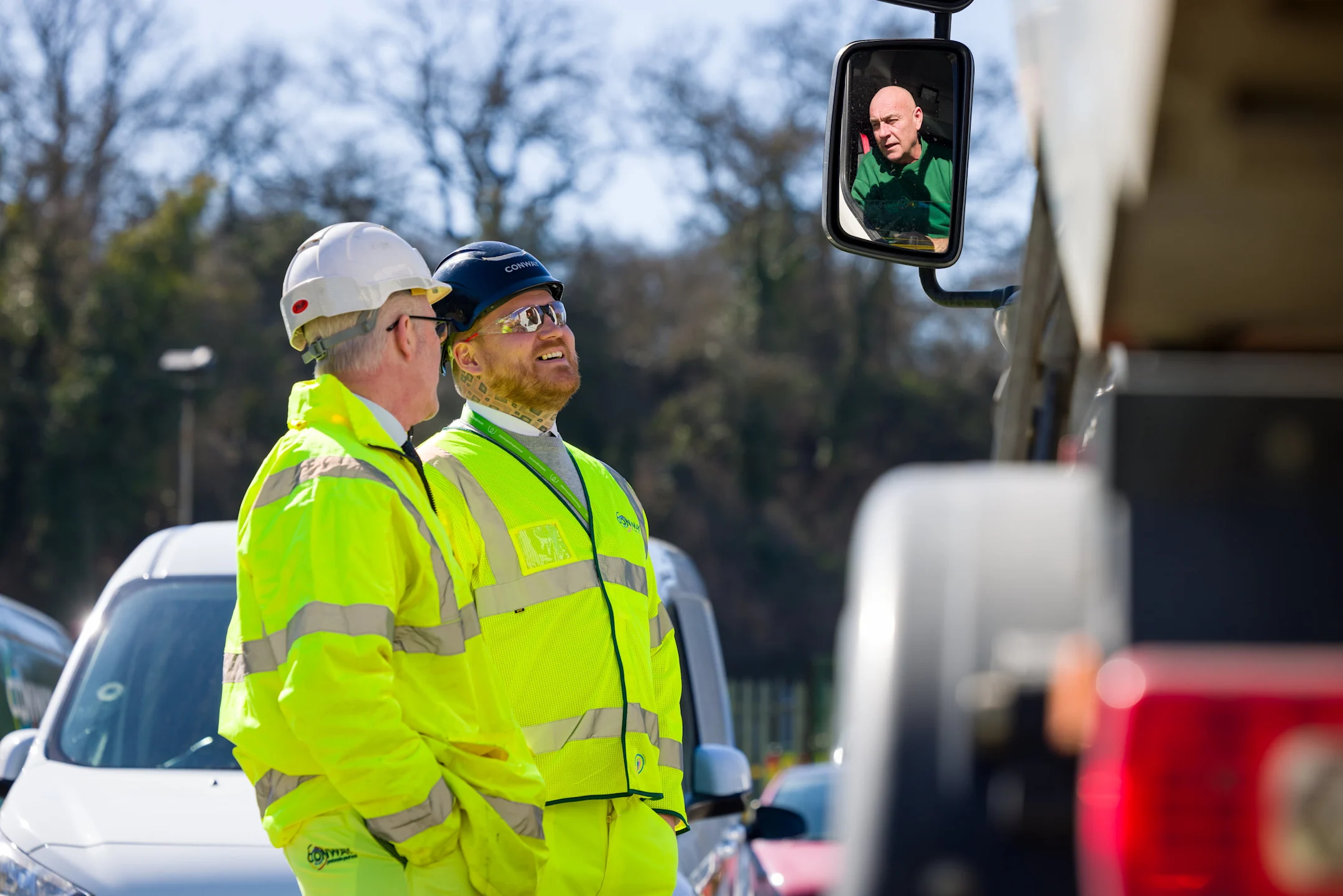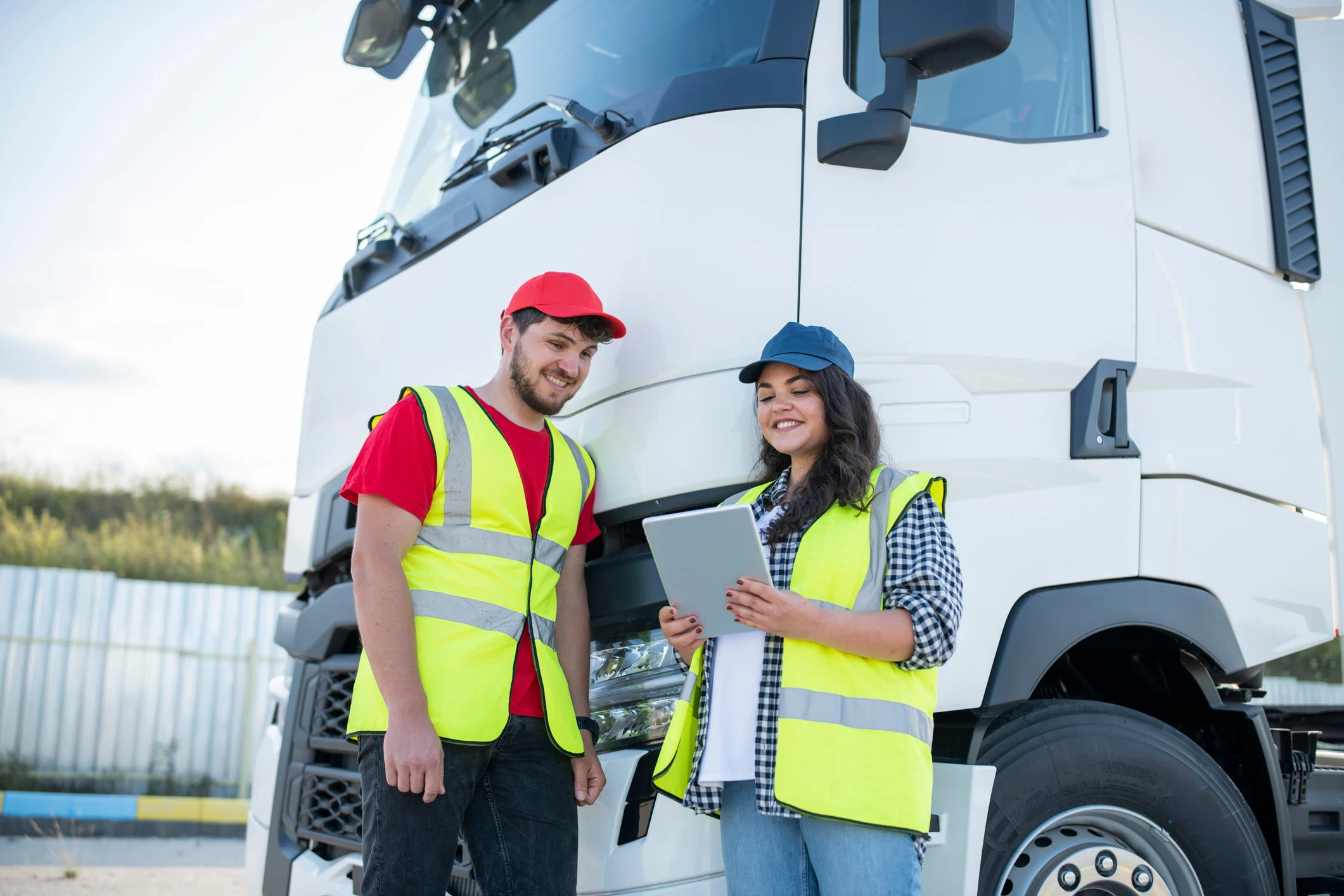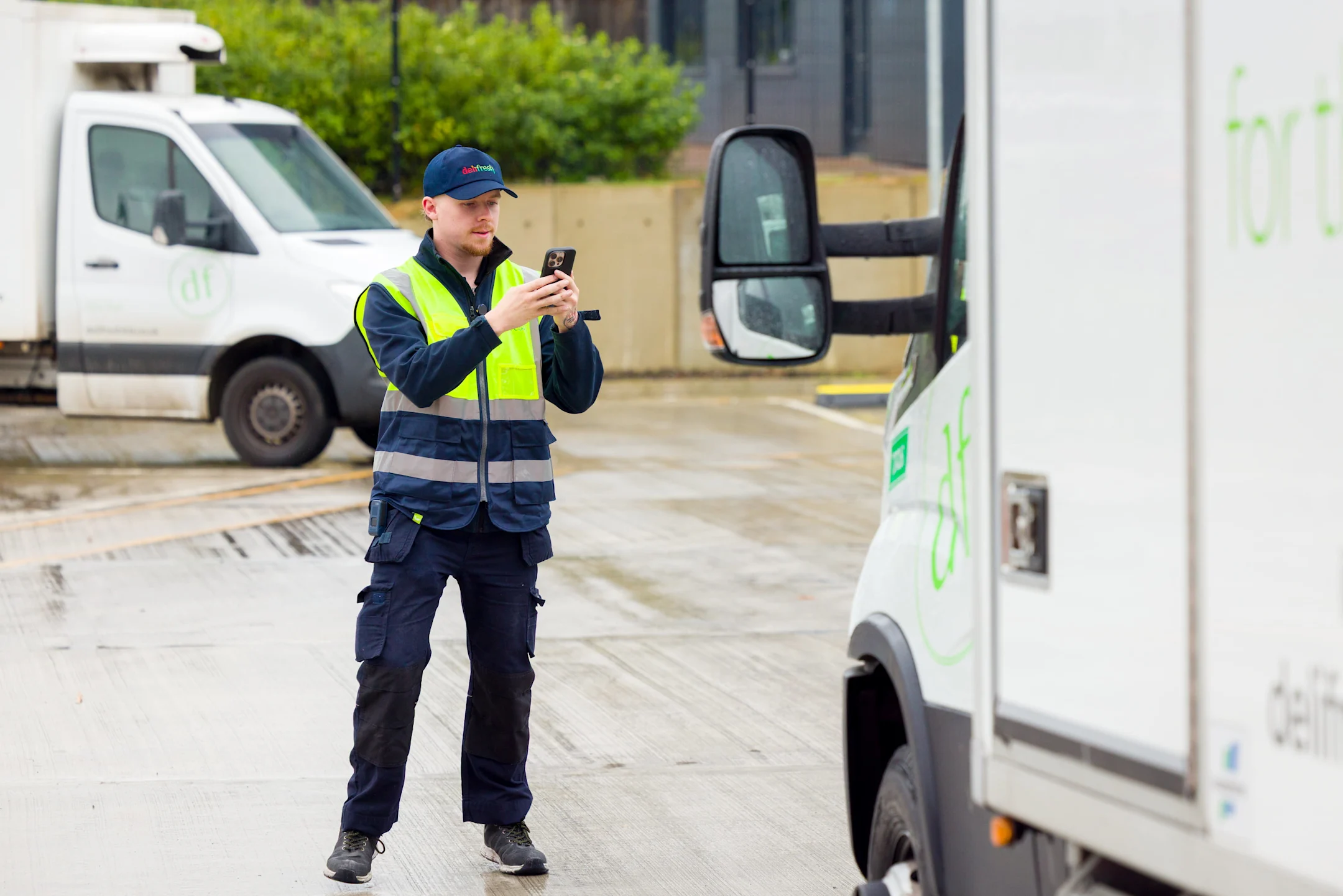Sustainability, Perspectives
AI in Logistics: How is it shaping our industry?
July 24, 2024
Compliance Officer, Fagan & Whalley

Get the latest from Samsara
Subscribe nowFagan & Whalley Ltd is a transport and logistics company serving the warehousing distribution needs of clients within a range of sectors across the UK. Based in Lancashire with almost 100 years of industry experience under its belt, it’s a business built on precision, reliability, efficiency and consistency.
Which may help to explain why it invested in Samsara’s Connected Operation Platform to help drive a safer, more sustainable, and efficient business.
Here, Olivia Fagan, Compliance Officer at the Lancashire-based business gives her take on connected telematics and the growing impact being made on the sector by artificial intelligence (AI).
Long gone are the days of playfully debating if robots might one day take over. In 2024, the presence of artificial intelligence (AI) in our daily lives is undeniable, and its impact on our world is profound.
The simple reality is that AI isn’t just coming; it’s already here.
But at Fagan & Whalley, one question has caught our attention. In an industry as vital as ours, which has conventionally been characterised by a rich history of expertise and tradition, is the supply chain management sector truly prepared to embrace the rise of AI in logistics?
Let’s take a look…
What is AI?
AI is defined as a branch of computer science that is dedicated to creating systems capable of performing tasks that typically require human intelligence. Examples of such tasks include interpreting complex data, recognising patterns, learning from experiences and making decisions.
AI in Logistics: What does that look like?
Having gained a basic understanding of the broader concept of AI, it’s crucial to appreciate its real-world impact on our daily lives.
The last few years have been transformative for much of the logistics industry.
With the growing rise of new technologies, new ways of working and new expectations – many logistics companies have been driven to rethink the way we operate. With that said, there is one specific area where the impact of AI has been particularly pronounced: vehicle telematics.
AI in logistics: vehicle telematics
It could be argued that telematics is the backbone of modern logistics.
Telematics offers us real-time tracking and monitoring of vehicles and driver behaviours – essentially giving us greater insight into our fleet and operations.
While telematics has existed for well over a decade, the field is constantly evolving as technology improves and develops. In the last couple of years, AI has supercharged the results gained from telematics by allowing companies to create safer roads, improve fuel efficiencies, predict vehicle maintenance, increase route optimisation, reduce operational costs and much more.
Let’s take a closer look at how AI is helping logistics companies evolve…
Increased driver safety
Firstly, a critical benefit of vehicle telematics is increased driver safety. Specifically, the implementation of advanced camera systems that leverage AI to detect driver distractions is a potentially transformative safety feature.
These intelligent systems are designed to monitor for signs of distraction or fatigue and can issue timely nudges or alerts to drivers, reminding them to refocus or take necessary breaks.
This proactive approach not only enhances the safety of drivers themselves but also contributes to the overall safety of our roads.
Improved customer service through vehicle tracking
Secondly, the integration of AI in logistics — particularly through vehicle tracking — significantly enhances customer service and customer satisfaction. Telematics means logistics companies can provide customers with real-time updates about the location of their goods, expected delivery times and any potential delays.
In this day and age, this transparency isn’t a novelty or an ‘extra’ service offering — it’s simply the bare minimum expectation. We live in a world where instant information is expected at our fingertips, and this extends to the logistics industry.
For many of our clients, the ability to track shipments builds trust with their consumers. We know from data that when consumers have access to the progress of their delivery, it reduces uncertainty and anxiety — particularly for time-sensitive or high-value shipments. While this level of service was once a luxury, it is now a competitive necessity in the logistics industry — and telematics allows companies like our own to meet these high standards.
Prediction of vehicle maintenance
Yet another way that telematics is currently benefiting the logistics industry is through the ability to predict when vehicles in fleets will require maintenance. This is also known as ‘predictive maintenance’.
Traditional maintenance schedules often relied solely on intervals or mileage, which often led to unnecessary service checks or, conversely, unexpected breakdowns. Telematics changes this for fleet operators by using predictive analytics to forecast when a vehicle will likely require maintenance. These predictions are based on real-time data and historical performance metrics.
Not only does predictive maintenance optimise fleet performance, streamline operations and reduce downtime, but it also significantly cuts costs associated with unexpected breakdowns and repairs. The predictive model allows for more efficient use of resources by ensuring that maintenance is performed exactly when needed rather than on a rigid schedule that may not reflect the vehicle’s actual condition or usage patterns.
Reduced carbon emissions
Finally, the logistics industry is increasingly under pressure to demonstrate environmental responsibility and demonstrate sustainable logistics practices.
Through optimising routes, minimising empty running and preventing unnecessary maintenance on vehicles, AI offers companies a tangible way to lessen their carbon footprint and shift towards greener operations. This is a huge advantage not only for logistics companies but also for their clients, who will often have sustainability targets of their own to meet.
As time ticks by, we predict this will only continue to be necessary for companies to future-proof themselves against shifts in consumer expectations and regulatory requirements.
AI in logistics: what do Fagan & Whalley think? At Fagan & Whalley, we pride ourselves on our investments in cutting-edge resources and tools that create safer, more innovative and efficient ways of working.
We’re confident that our integration of AI in logistics operations not only aligns with our commitment to innovation and sustainability goals but also enables us to serve our customers better and contribute to safer roads.
Get the latest from Samsara
Subscribe now














